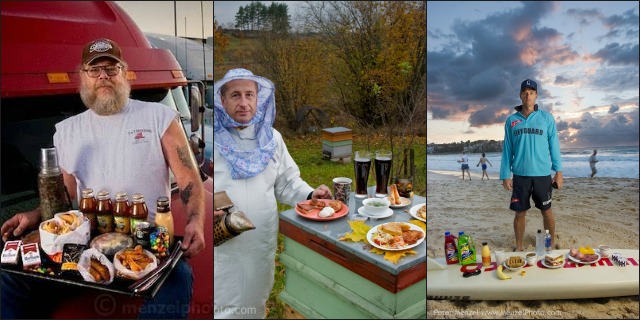
Different people eat different kinds of foods and different quantities of it around the world. Photographer Peter Menzel and writer Faith D’Aluisio traveled to 30 countries for three years to capture the eating habits of 80 individuals from strikingly diverse backgrounds. Their portraits are thought-provoking, showing incredible human beings and the food that fuels them over the course of a single day. The married couple’s efforts resulted in a fascinating book called What I Eat: Around the World in 80 Diets.
Menzel told NPR, “I want people to understand their own diets better — and their own chemistry and their own biology. And make better decisions for themselves”.
Below are 20 such startling examples of the 80 portraits found in What I Eat: Around the World in 80 Diets.
1. 54-year-old Conrad Tolby, a long-distance truck driver, Effingham, Illinois (5,400 kcal)
2. Viahondjera Musutua, a Himba tribeswoman (1,500 kcal)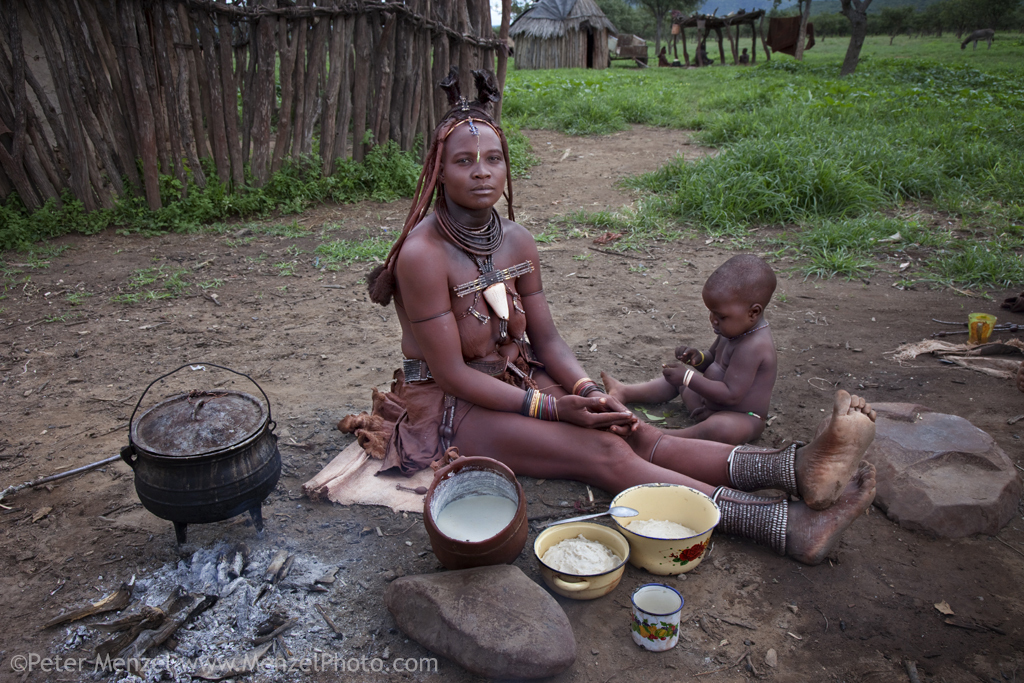
3. Curtis Newcomer, a US Army soldier, at the National Training Center, Fort Irwin in California’s Mojave Desert (4,000 kcal)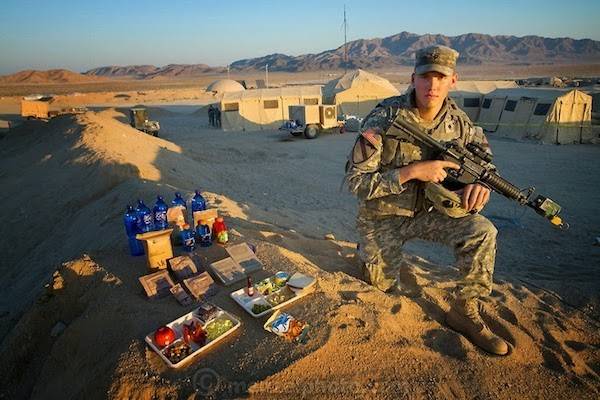
4. Aivars Radzins, Forester and Beekeeper, Vecpiebalga, Latvia (3,100 kcal)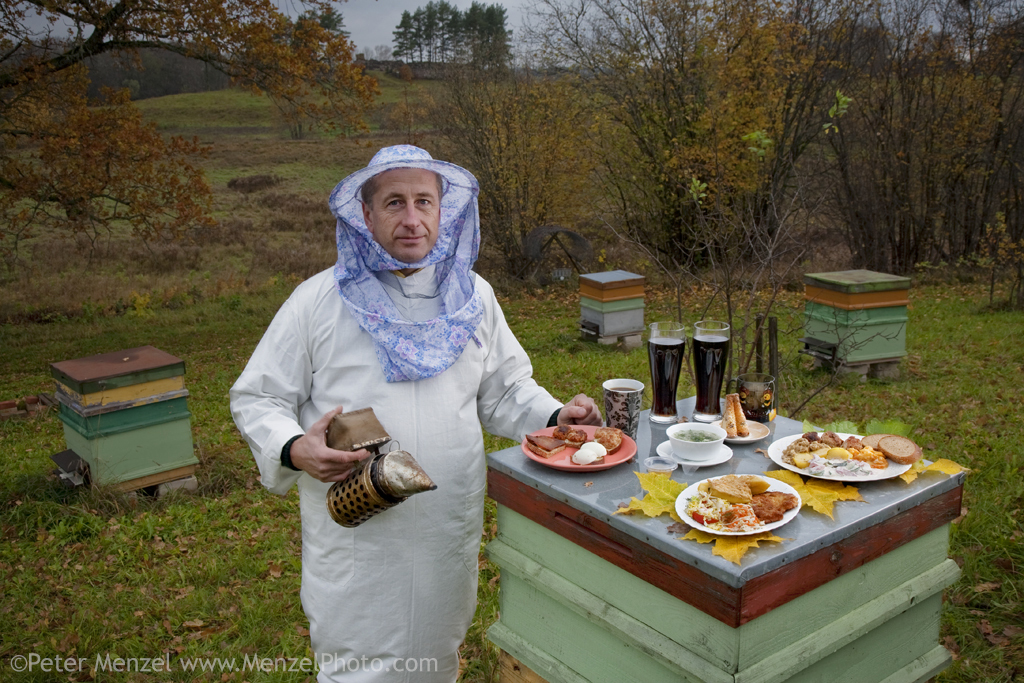
5. Seamstress Ruma Akhter, Dhaka, Bangladesh (1,800 kcal)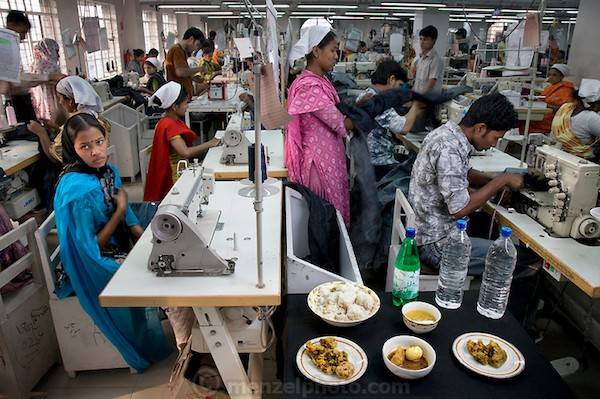
6. 49-year-old Solange Da Silva Correia, wife of a rancher, Amazonas, Brazil (3,400 kcal)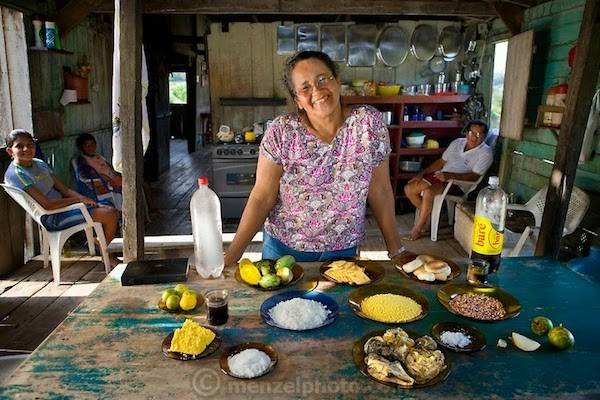
7. High school student Katherine Navas, Caracas, Venezuela (4,000 kcal)
8. 40-year-old Saleh Abdul Fadlallah, a camel broker, Cairo, Egypt (3,200 kcal)
9. Bruce Hopkins, a Bondi Beach lifeguard, Sydney, Australia (3,700 kcal)
10. Student Tiffany Whitehead, amusement park ride supervisor, Bloomington, Minnesota (1,900 kcal)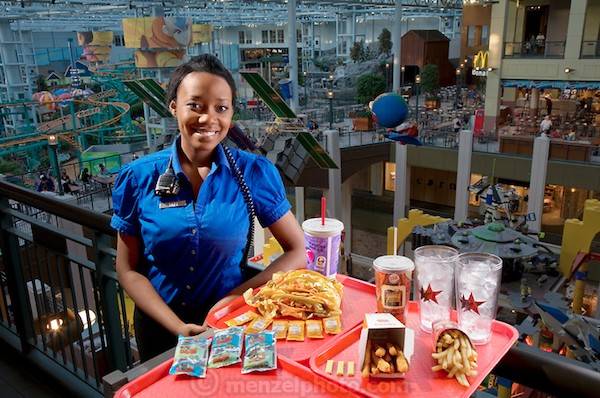
11. 45-year-old Munna Kailash, a bicycle rickshaw driver, Varanasi, India (2,400 kcal)
12. 37-year-old Maria Ermelinda Ayme Sichigalo, a farmer, Tingo Village, Central Andes, Ecuador (3,800 kcal)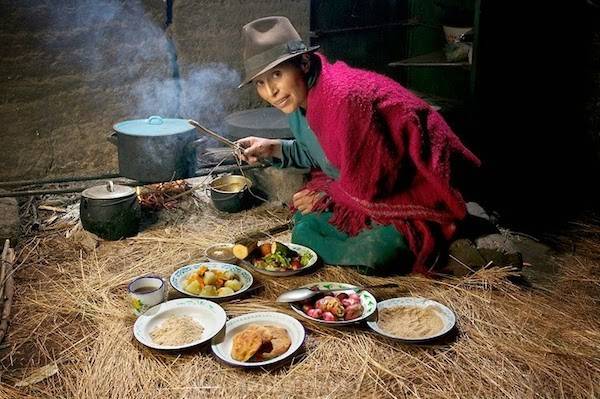
13. Takeuchi Masato, Professional Sumo Wrestler, Nagoya, Japan (3,500 kcal)
14. Ahmed Ahmed Swaid, Sanaa, Yemen (3,300 kcal)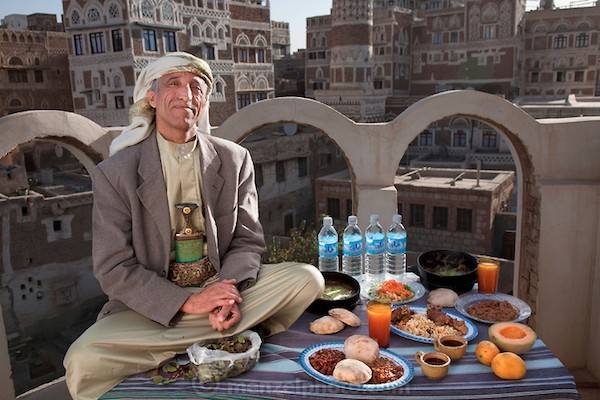
15. Mariel Booth, Professional Model and Student, New York University (2,400 kcal)
16. 45-year-old Leland Melvin, NASA astronaut, Outer Space (2,700 kcal)
17. 38-year-old Noolkisaruni Tarakuai, Maasai village, Narok, Kenya (800 kcal)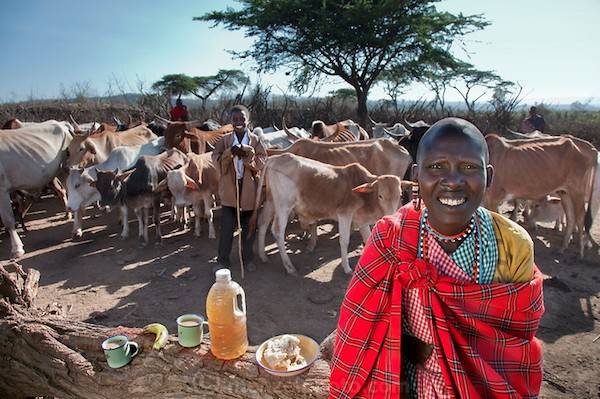
18.32-year-old Marble Moahi, HIV patient, Kabakae Village, Ghanzi, Botswana (900 kcal)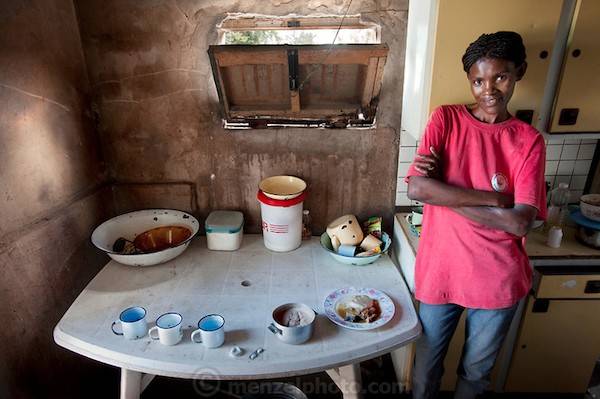
19. 29-year-old Willie Ishulutak, a soapstone carver, Iqaluit, Nunavut, Canada (4,700 kcal)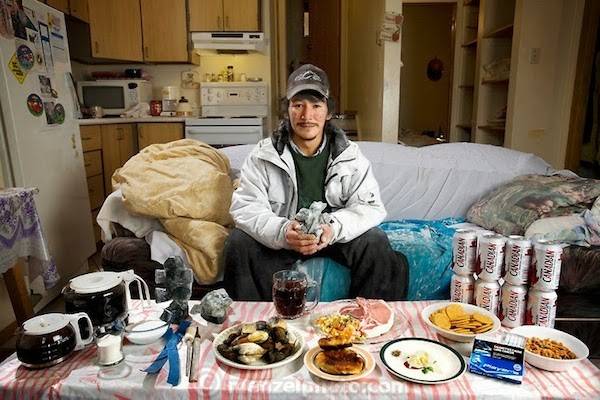
20. Sitarani Tyaagi, Hindu Priest, Ujjain, India (1,000 kcal)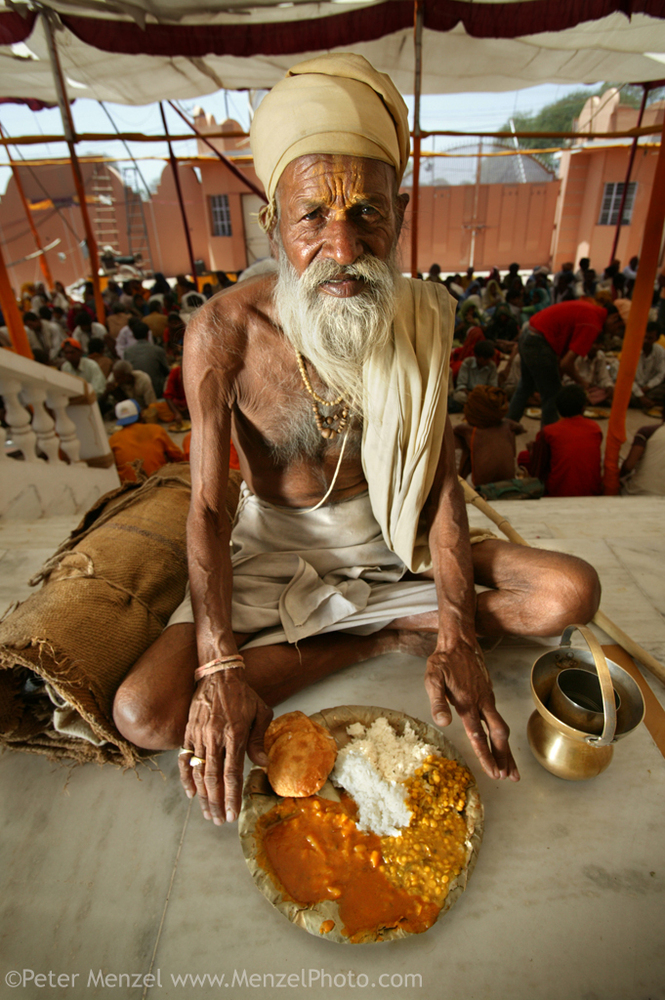
You want to support Anonymous Independent & Investigative News? Please, follow us on Twitter: Follow @AnonymousNewsHQ



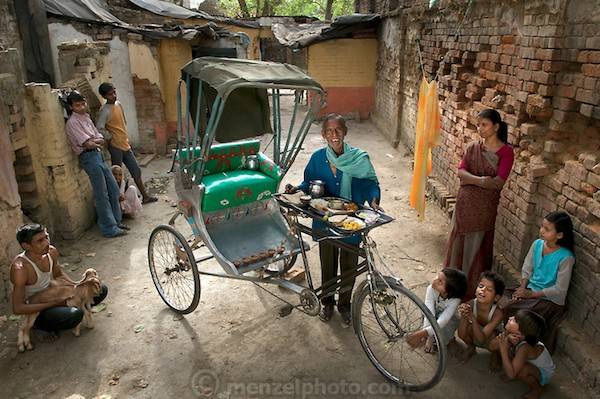



It amazes me that some of these people eat over 2,500 calories and they are not fat. I am overweight and I restrict myself to 1,800 calories a day. I still can’t lose weight.
its not about the calories, its a bout how you generate the calories. 😉
im eating 3500 vegan calories a day and practice yoga 90 mins a day and im skinny.
It is not because of your diet,,
One guy can eat 2500 calories and lose fat
Other guy 2000 and not lose fat
Same weight, same physical activity, same diet, only genetics are different.
The hormones I talk about is named T3, Growth Hormone and IGF, the 3 hormones that control your metabolism the most.
High IGF and you cant get fat and your muscular 10% no matter fat, if you lift a weight you build muscle fast, and even on a shit diet, we all know or have seen that type of guy, and we are talking natural people here. But even natural best genetics wont win amateur bodybuilding shows, not a chance.
Try some sassy water that will help you to lose weight (cucumber&lemon added little hot water)
perhaps it counts if they are good calories or bad ones? i think i read about this somewhere.
also, most of the men seem to do physical work, so I guess that burns a lot of calories.
lastly, each person is different. there might be hormonal differences and other conditions that affect each person’s absorption of food. i think that whenever the diet fails to get you some results (and the hormonal imbalances are treated), intensive sport fitness etc is the only solution. (like…really intensive. 1-2h per day maybe?)
Its not about your calorie intake, it’s about how healthy the food is that your eating and how much refined sugar is in the food. Refined sugar is extremely bad for your health and can cause many health problems. I would recommend watching a documentary called Fed Up, it talks about the history of refined sugars and what it can do to your health.
A good theory to lose weight is burn more calories then you’re talking in. It’s burial at first but you’ll adjust to it. Then you can up your calorie intake granted you’re still burning some.
Get your thyroid checked
Pathetic
I do not know one Australian or even person that would drink 2 entire bottles of Cottees cordial a day with only 2 600ml waters to mix it with. but awesome photos!
What’s cotees cordial?
Jessica it’s not how much you eat, but rather what you eat and the lifestyle you live. I eat nealy 4,000 calories a day and maintain my weight. With the type of lifestyle I live I burn a lot of it up,my work is fast paced and I workout for roughly 2 hours 5days a week.
So if you aren’t loosing weight and that is your goal, you need to reevaluate the food you are taking in vs energy out. Most People in these pictures you can see lead a very active life so they won’t get fat from eating so much.
Hard to believe ANY “successful” model eats 2400 calories a day.
I bet the soapstone carver has no heating in his house, or he also carves very heavy stones outside all day.
How does the sumo wrestler keeps his weight with only 3500 kcal, while the long-distance truck driver (5400) seems leaner than this wrestler? Does the truck driver do any exercise in his truck?
Sumo wrestlers eat only once per day and that is before they go to sleep. So, most food is stored as potential energy (which translates to ‘fat’). The more (smaller) portions of food one eats per day, the less the body ‘thinks’ it has to store, and the metabolism is faster.
Also, it depends on the kind of foods, not necessarily the kJoule or kCal intake – sugar and refined starch, for example, are the baddies whence it comes to weight gain.
I’m interested to find out why the two Africans don’t seem to have jobs?
HIV infection is not a job. I don’t think any of the other subjects were asked what they suffer from mentally or physically.
The Kenyan woman could have easily been a farmer or herder – why is that not listed?
Why is their work not important or does this oppose the narrative?
It seems they always want to only show Africans as poor and unemployed.
haha number 19, 8 pack of Canadian